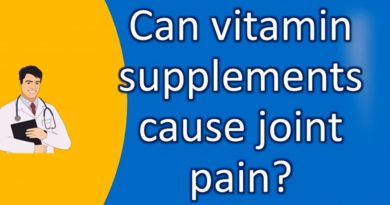Do Vitamins Break a Fast? Supplements and Intermittent Fasting
Click Here to Subscribe: http://Bit.ly/ThomasVid
Website: http://ThomasDeLauer.com
Get the Apparel I Wear at www.http://Hylete.com
Do Vitamins Break a Fast? Supplements and Intermittent Fasting
Study – Rejuvenation Research
To understand how fasting might make cells stronger, researchers recruited 24 people and asked them to practice an intermittent fasting diet for two three-week periods
The study was designed as a 10-week double-crossover trial, consisting of two 3-week treatment periods – IF and IF with antioxidant supplementation
Each 3-week treatment period was preceded by a 1-week pre-conditioning period used to establish baseline caloric intake and to acclimate the participants to study-provided food.
During the first fasting period, participants ate a specially calibrated diet and during the second three week period, they ate that diet and took oral supplements of Vitamin C and Vitamin E
Because researchers just wanted to focus on how intermittent fasting affected cells, and not weight loss, participants ate 175% of their normal daily calorie intake on feasting days, and 25% of their normal daily intake on fasting days to prevent weight loss
They ate typical American food – things like pasta, chicken, sandwiches and desserts like ice cream, and took samples of blood before they started and just after they ended the diet so they could compare levels of byproducts of oxidative stress and markers of strong cell functioning
During the first three week period researchers attempted to see if fasting would increase oxidative stress (free radicals) in each person’s cells and to see if this stress actually led to stronger, more resilient cells
Looked to see if taking antioxidants in the second fasting period would block the free radicals caused by the fasting, preventing the cells from becoming more resilient
In other words, they wanted to know if Vitamin C and E would shelter the cells to the point that they wouldn’t be ready to stand up for themselves later on
Results
Found that in response to fasting every other day, the cells made more copies of a gene called SIRT3, which is part of a pathway that works to prevent free radical production and improve cellular repair processes
Specifically, there was a 2.7% increase in SIRT3 expression due to the IF diet, but no change in expression of other genes or oxidative stress markers analyzed
Also found a significant decrease in levels of circulating insulin, a sign that the participants bodies were more responsive to this hormone
One surprising finding is that when participants took daily oral supplements of Vitamin C and E, the benefits from fasting disappeared
It seems that because the cells were relatively sheltered from experiencing any oxidative stress that may have been caused by fasting every other day, they didn’t respond by increasing their natural defenses and improving their sensitivity to insulin and other stress signals
This suggests that low levels of environmental stress from things like fasting are actually good for our bodies, and that antioxidant supplements, while potentially good at certain times, might actually prevent our normal healthy cellular responses in other situations
Antioxidants & Autophagy
In turns out that some level of ROS production is required for the normal regulation of autophagy as well
A team of researchers at the University of Cambridge explored the relationship between autophagy and the production or reactive oxidative species
They found that it is possible to induce autophagy without increasing toxic ROS and that some antioxidants reduce autophagy
They looked at two types of non-HD cells (HeLa and COS-7 renal cells), adding rapamycin, an antibiotic, and trehalose, a sugar, both of which have been shown to induce autophagy
Each increased autophagy but neither increased ROS.
Next they looked at the effect of various antioxidants on autophagy in the COS-7 renal cells.
Autophagy was measured by levels of LC3-II, a marker for autophagosome formation and autophagosome-lysosome fusion
They looked at N-acetyl-cysteine (NAC), cystamine (in the pipeline as a potential HD treatment), and glutathione
All three impaired the induction of autophagy by trehalose in a dose dependent manner – they also looked at the effect of NAC and cystamine on rapamycin induced autophagy and on basal (normal, not induced levels of) autophagy and got similar results.
Also found that vitamin E impaired autophagy as well
Resources
1) https://hdsa.org/wp-content/uploads/2015/02/13680.pdf
2) http://roguehealthandfitness.com/the-downside-of-antioxidants/
3) https://www.iflscience.com/health-and-medicine/how-fasting-might-make-our-cells-more-resilient-stress/



